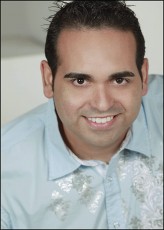

Liebhart also said providers have not always agreed on courses of action because of inexperience with transgender care. “I shocked the pants off of an EKG tech once when I took off my shirt off, and he wasn’t able to easily compose himself,” he said. He said VA providers aren’t always ready to deal with transgendered patients. “In fact, every step of the transition process was made smoother by the support of various providers.” “For instance, when I approached my primary care provider about starting HRT, I was met with absolute support and guidance,” he said. Liebhart said like any health care system, finding the right provider is critical. “I find Hines to be first rate and far better than any private sector care that I have ever received,” she said. This is not to say that providers themselves are always inclusive, but it gives one the sense of hope that you can find one who will be.” Advice for othersįanning, who received health care for years outside of VA, said she encourages all Veterans, including LGBT, to use VA. “The environment is one of general openness and inclusion. “I have found Truman VA to be very accepting,” he said. Truman Memorial Veterans’ Hospital in Columbia, Missouri, has been positive. Finally, my voice has become a true vocal representation of just who I am.” These days, I mostly stay in what is now my real voice, all day, with few slip ups. Then, those Improvements came in small, even subtle increments. It was six to eight months of frustration before I started to have any amount of success at all.
Robert amaya ethnicity professional#
“Even with professional guidance it has not been easy. “After years of unsuccessfully trying on my own to speak in a more feminine voice I found out just how difficult it is,” she said. “But the prospect of having access to real, professional vocal coaching certainly was an opportunity I could not pass up.” Resultsįanning said while the therapy challenges her, the results boosted her confidence. “Having tried to affect a ‘feminine voice’ for so long on my own, and never having any real success, I had all but given up on being able to develop one in this lifetime,” Fanning said. She said the speech therapy has been especially helpful, especially being a tall transgender woman with a deep voice. This includes hormone treatment, group therapy and speech therapy.

“Everyone at Hines treats me with the same respect as everyone else, whether I am here for a regular appointment or as an admitted patient.”įanning has used multiple health care services. “For me, my VA experience has been all positive,” Fanning said. Now fully surgically transitioned, Liebhart said he lives “a complete and honest existence.” His lesbian wife and he still have a happy marriage.įor Fanning, she is a fan of her service at the Edward Hines, Jr. I came out to my family and close friends as a trans man in my mid-30s and swiftly began the transition process.” “But in time I came to see that who I was did not match the container I held myself in. Liebhart reached a point accepting the truth: she was not a woman. Liebhart lived as a female-presenting lesbian for many years, marrying another lesbian. The reception was poor, forcing Liebhart back into the closet. In 2015, she turned to VA for care.Īt the time a woman, Liebhart told a close friend in high school about her sexuality. “I really did not accept the truth of who I was until after my two children were grown,” she said. She said she had a slow journey of self-discovery. LGBT journeyįanning said she was “clueless” about her gender and sexuality issues until already married. “There was one occasion where someone casually mentioned my sexuality, and I was told in no uncertain terms that if my command sergeant major ever heard word about it again, I would be out of the military,” he said. Serving during Don’t Ask Don’t Tell, Liebhart could not reveal sexual orientation. Liebhart also deployed to Iraq for 15 months from September 2006 to December 2007. He served for just over seven years with military police at Fort Rucker, Alabama, and Fort Riley, Kansas. Liebhart came from a Catholic family, joining the Army in 2002. “Somehow I just lucked out that I was never in any kind of danger, but then there was no adventure or world sightseeing either,” she said. Fanning poses for a photo during boot camp.


 0 kommentar(er)
0 kommentar(er)
